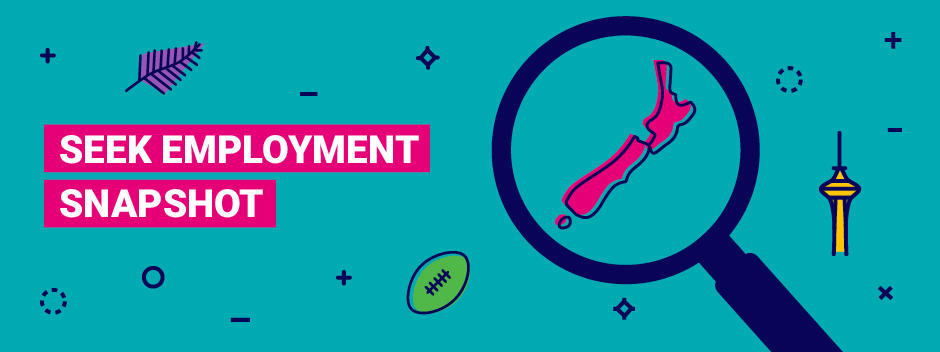
Candidate confidence bounces back
Competition among candidates for jobs remains fierce. Research conducted for SEEK reveals that as of mid-April, 40% of candidates agree there are not enough jobs out there.
Despite candidates feeling the weight of the competition, they’re also feeling more optimistic about future employment prospects. Optimism reached an all-time low in late March at 59% but started to bounce back in mid-April to 62%.
While employers may be able to attract an even higher calibre of talent in a candidate-rich market, your employee value proposition (EVP) will help you to stand out from the competition and retain talent.
Nick Deligiannis, Managing Director of Hays Australia and New Zealand, says employers should promote flexibility in their EVP during COVID-19 and foster work-life balance as we emerge from the pandemic..
“There will be many people who would like to see some form of flexibility remain, at least for a part of their week, if not all, once we begin to transfer back into co-located workplaces,” he says.

Making remote working work
When COVID-19 began sweeping the globe at the start of 2020, the march toward remote working suddenly gathered pace.
Now 47% of Kiwis are working from home and this figure rises to three in four for white collar workers.
Almost 70% of New Zealanders agree that working from home should be a more common practice in workplaces, especially among those who believe they work more efficiently at home. Remote work can come with its own set of challenges, but there are simple strategies you can undertake to help your employees work well from home – such as encouraging connection and having clear feedback channels.
KiwiBank is one organisation that’s had a flexible working policy in place for several years. While this helped the bank to transition its workplace to home offices at the start of the COVID-19 crisis, the experience still presented challenges, says the bank’s Chief People Officer, Leigh MacDonald.
“Despite our flexible working policy, from a cultural perspective, people were generally choosing to spend most of their time in the office before COVID-19,” he says.
“When the announcement of the lockdown happened, we had to mobilise behind customer care and support a number of government-led initiatives to help New Zealanders and New Zealand businesses affected by COVID-19. Customer online and phone inquiries went through the roof and we had to find way of redeploying front-line staff who were used to having face-to-face conversations with customers.”
MacDonald explains this required training more than 200 employees remotely to meet the demands of customers, as well as deploying technology and hardware so they could do the job from their home, rather than from a bank branch.
The bank’s 1400 corporate-office employees were also sent home to work and MacDonald says there was a practical approach to management. “We encouraged leaders to reach out to their team members on a daily basis to check in that they were going ok. Clear communication had to be a priority.”

Supporting mental health
Mental health is also a concern for Kiwis, with one in three reporting they feel lonelier than ever before. More than 30% agree that they feel nervous or uncertain about their job security.
SEEK’s Resident Psychologist Sabina Read says the current sense of uncertainty is taking a toll on mental health.
“Humans like to fill uncertainty with predictability and solutions and understanding,” she says. “But, at a time like this, no one can join the dots with 100 per cent certainty, because there’s just so much that we don’t know.”
SEEK research shows candidates who’ve received support from employers feel more hopeful and less anxious about their future.
Read says supporting employees can start with asking questions. “It's useful to ask, ‘What do you need from me? What's working well for you? What would you like to be different? What are you learning about your own style of working at the moment?’ These kinds of questions are open-ended and non-judgmental. They show a genuine curiosity about them and they're not cookie-cutter. They are also great way to build rapport.”
Leading with empathy
At KiwiBank, MacDonald says leaders are “empowered to lead with empathy”.
“We had to be aware that people have been struggling in very different ways,” he says.
Maintaining a strong culture is also a vital means of support, says MacDonald. “We have a social communications platform and the leadership team really dialled up the activities on it. We had daily videos from the CEO and other leaders across the business. We created a social COVID-19 page where people posted photos of their home office with their cat sitting on the keyboard.”
“We tried to personalise everything – we were all in it together,” adds MacDonald. “Our biggest asset is our people, so we had to make sure that we maintained a connection when we couldn’t just pop over to someone’s desk for a chat.
“I think we’ve shown in the crisis that we can run our business by working remotely, but it doesn’t come for free,” he says. “We have to keep thinking about the skills we need to lead people remotely and how we can help people in our business who are changing their ways of working for good.
“We’re all still going through a significant challenge,” adds MacDonald, “but I think employers have to rally behind their people, now more than ever.”
Source: Independent research conducted by Nature on behalf of SEEK. Interviewing 4000 Kiwis annually.

